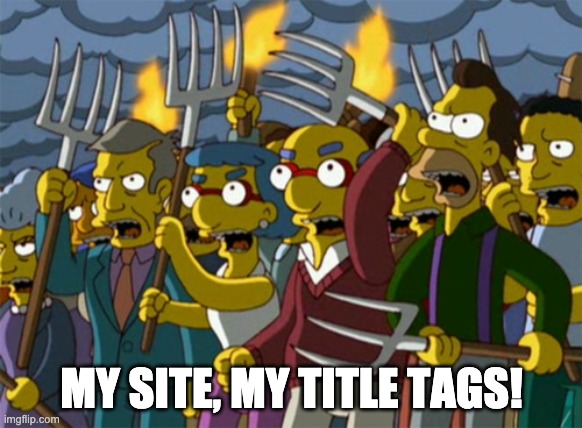Google: can’t live with it, can’t live without it? As a marketer, I’ve spent much of my career kneeling at the altar of Google. If you want your site to be found, you have to follow their rules. But it’s felt like the last year has been full of marketers scrambling to adjust to changes in the Google playbook.
Over the years, we’ve watched as the SERPs were restructured with all types of new elements (featured snippets, anyone?). We’ve learned to accept that the cookie is crumbling, and now we’re discovering that we’ve lost control over our title tags (and ad copy) as well.
What’s a digital marketer to do?
Query: Who does Google work for?
Let’s not forget that Google is a business, and a pretty damn successful one. It might put out some philanthropic vibes, but it’s not here for the greater good of equitable knowledge sharing. Its business model is (of course) to earn money, and it is DOING THAT. According to Statista, annual advertising revenue in 2020 was $146.9 billion USD. And wait, that’s JUST on ads.
So yes, this is a very lucrative business indeed. Yes, the search engine may be free to us users. But ask yourself: is anything life ever truly free?

Cue marketers everywhere pretending this means they’ll never have to think about it again.
Anyway, things went back to normal for a few months. Google went back to tracking people, marketers went back to trying to figure out how to do SEO properly in the ‘20s (or, back to figuring out how to hack/scam SEO to get what they want). Life all was grand.
Until Google did it again.
Why you gotta go after our title tags?
Any marketer with any responsibility for SEO has, at some point or other, agonized over crafting the perfect title tags. How to accurately describe the boundless wit and wisdom of your webpage in just sixty characters, while also fitting your target keyphrase in there? Puzzle lovers, rejoice. Everyone else, cringe and hire an agency.
But now we’re learning that Google is, at least occasionally, ignoring, replacing and even rewriting said title tags. Sometimes your title tag will get replaced by your h1. Sometimes, Google will pull something completely different. Google, why have you forsaken us??
Google’s stance seems to be that lots of title tags are either empty, too long, nonsensical, packed with too many keywords (also nonsensical) or just plain old terrible. So they are trying to protect the user experience. And, we hear you. We also <3 a good user experience.
And we are shamed for our terrible meta tags.
So what are we to do now? It seems like, keep (or start) following best practices, and you’ll probably be fine. In fact, Google is still pulling the provided title tags somewhere around 80% of the time a search result is delivered. Here it is, straight from the horse’s mouth.
So I guess, let’s all put our pitchforks away for a little while and see how this all plays out.
Wait, there’s more!
Of course there is. On the paid search side, Google is also sunsetting Expanded Text Ads, to be replaced with Responsive Search Ads. Le sigh. Yet again, Google wants to jazz up your carefully crafted copy. You upload several variations of phrases and Google plays mix-and-match on the fly, depending on the user’s search queries.
Sounds cool, and it actually probably will work well. It will also probably wreak havoc for legal review and other approval processes, especially for those of us in highly regulated industries. And cue teeth gnashing.
I once worked with a company that wanted to control every element of their ads. They got EXTREMELY upset when they discovered that Google was building dynamic ads for them on the fly – this wasn’t approved content, after all.
That is, until they saw the results of said ads. Those dynamic ads delivered much higher ROI, and were driving real revenue. Everyone settled down after that.
The article linked above offers a few workarounds, at least for the time being, for companies that absolutely need to control every single word (I know, some do). As for me, I’m taking the wait-and-see approach.
By the time we see how these changes are working in the real world, there will be another Google pivot that we’re all distracted by, anyway.












